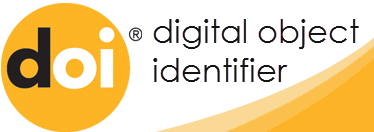খাদ্যে ভেজাল রোধে ইসলামী নীতি: খাদ্যবিক্রেতার অনুশীলন প্রসঙ্গ|Islamic Guidelines for Preventing Food Adulteration : The Food Vendor’s Practice Context
DOI:
https://doi.org/10.58666/iab.v19i76.238Keywords:
Food, Prevention of adulteration, Islamic Guidelines, Food Vendor, Real Picture of Practices, খাদ্য, ভেজাল রোধ, ইসলামী নীতি, খাদ্যবিক্রেতা, অনুশীলনের বাস্তবতাAbstract
The root cause of several chronic and complicated illnesses is contaminated food. Families are left emotionally, financially, and physically devasted when they have to pay more for the medical care of a sick member who was exposed to contaminated food. In the eyes of Islam, adulterers of food violate the rights of the consumer by perjury and deception, unjustly consume the wealth of others and push the consumers towards death by supplying adulterated food. The essay employs qualitative research methodologies to investigate the application of Islamic guidelines in preventing food vendors from adulterating food. The research has demonstrated that the adulteration of food is influenced by the buyer’s unreasonable demands, ignorance, irregularities of the parties involved, corruption and bribery, extortion of local influential persons, additional bribery of government fees to obtain business licenses and other services, and the vendor’s greed for increased profit. While the study does not provide an overall picture of food adulteration, it does provide a realistic picture of food vendors’ reflections and practices on food adulteration, which will be useful to food-related researchers, students and policy makers.
সারসংক্ষেপ : ভেজাল খাদ্য বহু জটিল ও দীর্ঘস্থায়ী রোগের কারণ। ভেজাল খাদ্য খেয়ে রোগাক্রান্ত ব্যক্তির চিকিৎসায় পারিবারিক ব্যয় বৃদ্ধি পায়, যা একটি পরিবারকে আর্থিক, মানসিক ও শারীরিকভাবে বিপর্যস্ত করে ফেলে। ইসলামের দৃষ্টিতে খাদ্যে ভেজালকারীরা মিথ্যা শপথ ও প্রতারণা করে ক্রেতার অধিকার নষ্ট করে, অন্যায়ভাবে অন্যের সম্পদ ভক্ষণ করে এবং ভেজাল খাবার দিয়ে ভোক্তাকে মরণব্যাধির দিকে প্রভাবিত করে। বক্ষ্যমাণ প্রবন্ধে গুণবাচক গবেষণা (ছঁধষরঃধঃরাব জবংবধৎপয) পদ্ধতির মাধ্যমে খাদ্যবিক্রেতা কর্তৃক খাদ্যে ভেজাল রোধে ইসলামী দিকনির্দেশনা অনুশীলনের বাস্তবতা অনুসন্ধান করা হয়েছে। গবেষণায় উঠে এসেছে যে, ক্রেতার অযৌক্তিক চাহিদা, অসচেতনতা, তদারকি সংশ্লিষ্ট একাংশের অনিয়ম, দুর্নীতি ও ঘুষ, স্থানীয় প্রভাবশালীদের চাঁদাবাজি, ব্যবসা সংক্রান্ত লাইসেন্স ও অন্যান্য সেবা পেতে সরকারি ফির অতিরিক্ত ঘুষ গ্রহণ এবং বিক্রেতার অধিক মুনাফার লোভ খাদ্যে ভেজাল মেশাতে প্রভাবিত করে। এ গবেষণায় খাদ্যে ভেজালের সামগ্রিক চিত্র ফুটে না উঠলেও খাদ্যে ভেজাল সম্পর্কে খাদ্যবিক্রেতাদের চিন্তার প্রতিফলন ও অনুশীলনের বাস্তব একটি চিত্র ফুটে উঠেছে, যা খাদ্য সংশ্লিষ্ট গবেষক, শিক্ষার্থী ও নীতি নির্ধারকদের ক্ষেত্রে সহায়ক ভূমিকা পালন করবে।
References
Al Qurʼān Al Karīm
Abū Dāwūd, Sulaimān Ibn Al Ashʻath .1999. Sunan Abī Dāūd. Riyād: Dār Al salām.
Abū Ḥabīb, Saʻdī. 1988. Al Qāmūs Al Fiqhī. Dimashq: Dār Al Fikr
Abul Hashem, Md., Md. Arif and Kamrun Nahar. 2012-2013. KhaddoDrobbe Vejal Rodhe Porosovar Grihito Karzokrom o Karonio:3ti Porosovar Upor Akti Somikkha. Dhaka: National Local Government Institute.
Al ʻAbbād, Muḥsin.1421H. Sharḥ Sunan Abī Dāūd. Bairūt: Dār Al Bashāir Al Islāmiyyah.
Al ʻAsqalānī, Aḥmad Ibn ʻAlī Ibn Ḥajar. 1379H. Fatḥul Bārī. Bairūt: Dār Al Maʻrifa.
Al Ghalib, Muhammad Asadullah. 2010. Nobider Kahinii. Rajshahi: Hadith Foundation Bangladesh.
Al Maruf, Md. Hasan. Assistant Director, the Directorate of National Consumers’ Right Protection. Divisional office, Rajshahi. Interview date: 03 November 2022.
Al Tirmidhī, Abū ʻIīsā Muḥammad Ibn ʻIīsā Ibn Sawrata Ibn Mūsā. 1998. Sunan Al Tirmidhī. Bairūt: Dār Al Gharb Al Islāmī
Ali, Ahmad. 2009. Islamer Shasti Ain. Dhaka: Bangladesh Islamic Centre
Ali, Md. Zafar. 2022. ‘‘Uttpadito Khaddoponne Vejal Protirodhe Rasulullah (PBUH) er Nirdeshona’’ Islami Ain O Bichar 18: 69-70, 27-52.
Arefin, A., Arefin, P., Habib, S., & Arefin, M. S. 2020. ʻStudy on Awareness about Food Adulteration and Consumer Rights among Consumers in Dhaka, Bangladeshʼ Journal of Health Science Research, 5(2), 69–76. https://doi.org/10.18311/jhsr/2020/25038
Bhatt, Shuchi Rai. 2010. “Impact Analysis of Food Adulteration on Health in Some Selected Urban Area of Varanasi”. PhD diss. V. B. S Purvanchal University, India
Choudhary, A., Gupta, N., Hameed, F., & Choton, S. 2020. ‘An overview of food adulteration: Concept, sources, impact, challenges and detection’ International Journal of Chemical Studies, 8(1), 2564–2573. https://doi.org/10.22271/chemi.2020.v8.i1am.8655
El-Awā, Moḥamed.'Abdalla Selim 1972. ‘‘The Theory of Punishment in Islamic Law: A Comparative Study’’ PhD thesis, University of London. https://eprints.soas.ac.uk/33822/1/11010612.pdf
Human Rights 1948, United Nations Universal Declaration of Human Rights.
Ibn Kathīr, Abū Al Fidā Ismāʻīl. 2000. Tafsīr Al Qurʼān Alʻ Aẓīm .Bairūt: Dār Ibn Ḥazam.
Islam, Jannatul, F. I. M. Muktadir Boksh & Ashraful Begum. 2015. ‘‘Food Safety: A Study On Policy Framework Of Protecting Food Adulteration In Bangladesh’’ Journal for Worldwide Holistic Sustainable Development, 1(3), 43-53.
Islam, Md. Nazrul. 2018. Islame Vokta Odhikar. Dhaka: Islamic Foundation Bangladesh.
Islam, Md. Shofiqul. 2019. ‘‘Ponne Vejal Protirodhe Islam: Poriprekkhit Bangladesh’’ Islami Ain O Bichar 15:58, 109-136.
Islam, Mohammad. 2020. Food Adulteration And Unethical Use Of Formalin. Bachelor’s Thesis. Centria University Of Applied Sciences. www.theseus.fi/bitstream/handle/10024/344492/Islam%20Mohammad.pdf?sequence=2
Kamali, Muhammad Hashim. 2014. Islami Ainer Mulniiti.Translated by: Md Sajjadul Islam. Dhaka: Bangladesh Institute of Islamic Thought
Khan, Akbor Ali. 2017. Porarthoporotar Orthoniiti. Dhaka: The University Press Limited.
Lakshmi,V. 2012. ‘‘Food Adulteration’’ International journal of science invention today 1(2), 106-113
Muslim, Abū Al Ḥusain Muslim Ibn Ḥajjāj. 2000. Ṣaḥīḥ Muslim. Al Riyāḍ: Dār Al Salām.
Nasmān, Muḥammad ʻAbd Al Karīm. 2019. Jarīmatul Ghash Fil Mawādd Al Ghadhāiyyah Wal Āthār Al Mutarattabah ʻAlaihā. Masters Thesis. Islamic University Gaza.
Nirapod Khaddo Ain-2013, the People’s Republic of Bangladesh.
Ojon O Porimap Mandondo Ain, 2018. the People’s Republic of Bangladesh.
Rahman, A., Sultan, Z., Rahman, M. S., & Rashid, M. A. 2015. ‘‘Food Adulteration: a serious public health concern in Bangladesh’’. Bangladesh Pharmaceutical Journal, 18:1, 1–7 Doi: 10.3329/bpj.v18i1.23503
Sābiq, Al Sayyid. 2003. Fiqh Al Sunnah. Bairūt: Muassasah Al Risālah.
Shamim, Kamrujjaman. 2012. ‘‘Babsay-Banijje Mojuddari : Islamii Dristikon’’ Islami Ain O Bichar. 8:31, 141-158.
Singh, Dhyan. 2014. “Effect of ‘Jago Grahak Jago’ communication campaigns in India to increase consumer awareness”. International Journal of Innovative Research and Development. https://www.researchgate.net/profile/Dhyan_Singh/publication/263848091_jago_grahak_jago/links/0deec53c0bd14e71da000000.pdf
Sutherland, Edwin H. 1940. “White-Collar criminality” American Sociological Review, 5:1, 1. https://doi.org/10.2307/2083937
Talash.Aonusandhani Protibedon. Independent Television. Porbo: 134, www.google.com/search?q=তালাশ+১৩৪&oq
The Constitution of the People’s Republic of Bangladesh
Vokta Odhikar Songrakkhan Ain, 2009. The People’s Republic of Bangladesh.
Downloads
Published
Issue
Section
License
Copyright (c) 2024 AMIRUL ISLAM

This work is licensed under a Creative Commons Attribution 4.0 International License.





